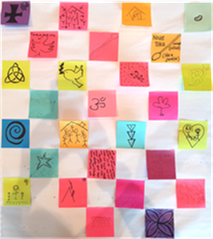He aha te mea nui o te ao? He tāngata, he tāngata, he tāngata.
What is the most important thing in the world? It is the people, it is the people, it is the people.
This strategy seeks to deliver a whole-of-system approach to improving maternal and neonatal care for all families in our region, with a pro-equity focus on actions to improve outcomes for Māori and Pacific whānau & families, and disabled women and babies with impairments.
Across our rohe (2DHB) a significant amount of work and engagement has taken place to review our maternal health service, with a particular focus on service delivery for maternity and neonatal care that will support mothers, families and babies in their first 1,000 days. Over 5,000 babies were born in 2020 across our region and we know that the first 1000 days of a child’s life are the most crucial for their development.
As we work towards a future system, we remain focused on providing excellent care to mothers, babies and whānau as well as enhancements to our current services, including our Hutt Maternity redevelopment programme.
Our Strategy Journey
A key part of the strategy process has included undertaking workshops with our partners, stakeholders and community including an experienced Advisory Group of clinical, cultural, provider and lived experience experts. This ensures that our work is grounded in the views, experience and expertise of families, community providers, cultural and clinical leaders, and other important voices from within our maternity system.
During our workshops we discussed our priority action areas, including: culturally responsive care, new community models of care, enabling maternal and neonatal care, improved access to primary birthing and a connected system. We were excited by the rich insights and valuable suggestions provided to us to make the Maternal and Neonatal System Strategy stronger and more effective.
Research and Insights informing this kaupapa include:
First 1000 days, Māmā, Pepī Tamariki research findings and Creating Enabling Maternity Care: Dismantling Disability Barriers by Dr Carey-Ann Morrison.
Enabling Good Lives
As part of our pro-equity, human-centered design approach we are incorporating the principles of Enabling Good Lives to our strategy. The Enabling Good Lives (EGL) Principles is an new approach to ensure disabled people have choice and control over their lives. Within the Maternity Service redesign the Enabling Good Lives Principles provide a good set of expectations that maternity services need to have in place so parents and babies with impairments/disabilities have a great start. Read more here.
Maternity Services Tapa

Our emerging Maternity Services Tapa likens the process of developing the strategy to the act of coming together to weave a tapa cloth.
With our Advisory Group we identified it takes time, and the committed effort of many people to produce something that will endure and be treasured. Most post-it notes on this tapa have a simple drawing depicting a strength or gift from each of the Project team and the Advisory Group.
Key dates
A big thank you to all who have fed into this body of work, past and present, to ensure that this mahi will support our hapū māmā, pēpi, tamariki and whānau to thrive and flourish.
Key dates for the strategy work are below:
- Advisory Group discussed the draft strategy: 10 November.
- Strategy is presented to the 2DHB Health System Committee: 24 November and to the 2DHB Board: 1 December 2021. Papers will be publically available.
Once the strategy is endorsed, we will work with groups of consumers, clinicians and other experts to implement the new system.
If you have any questions or would like us to add a contact to our list for future updates please email us at: MaternityStrategy@CCandHVDHBS.health.nz

